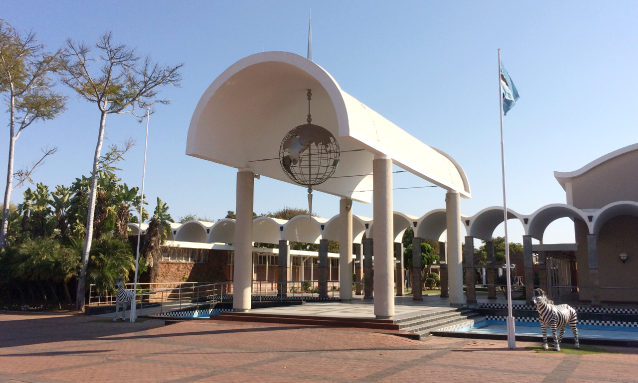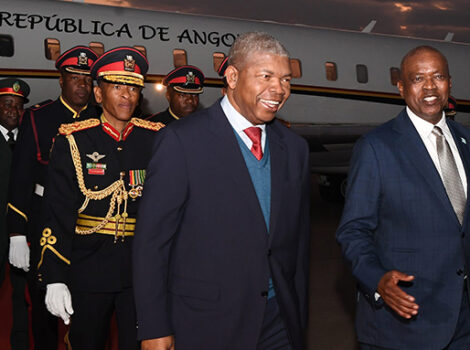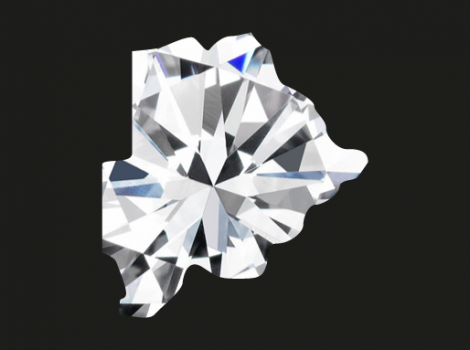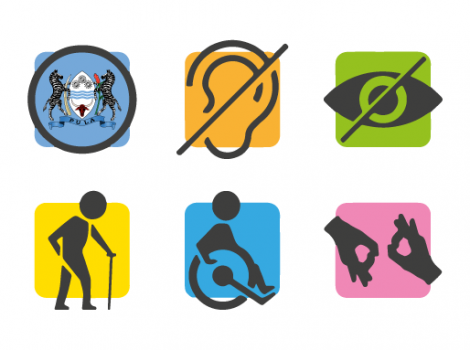
The second Summit for Democracy initiated by US president Joe Biden takes place simultaneously in five continents this week. It offers a unique stage to small countries with strong democratic identities like Botswana, Mongolia – and Switzerland.
The second Summit for Democracy takes place from March 28-30 and brings together more than 100 countries. This global event was initially proposed by US president Joe Biden and took place in Washington DC in December 2021.
At the summit, participating governments including Switzerland committed to concrete democracy support measures, which will not be evaluated during this week’s second edition, which takes place on five continents. The second Summit is co-hosted in Africa (by Zambia), Asia (by South Korea), Europe (by the Netherlands) and the Americas (by Costa Rica and the United States).
Kaelo Molefhe is Advisor for Democracy in the Office of the President of Botswana
Democracy diplomat Kaelo Molefhe tells SWI swissinfo.ch how a small landlocked, once poor Southern African country has become a peaceful and wealthy country and now intends to become a global engine for democracy – and why increasing its cooperation with Switzerland is part of this story.
In late March, Molefhe participated in a pre-summit meeting hosted by the Swiss government at Giessbach/Lake Brienz in the Swiss Alps, together with government representatives from Indonesia, Mongolia, Kenya, South Africa, Colombia, Ireland, the United States and the European Union.
SWI swissinfo.ch: Since gaining full independence in 1966, Botswana has been a thriving, open and competitive multi-party state, making it the oldest uninterrupted democracy in Africa. What are the reasons for this success?
Kaelo Molefhe: I think a number of factors can explain this development. Let me start by focusing on the British rule beginning in 1885 until independence in 1966. Unlike elsewhere in the continent, the British opted for indirect rule in the then Bechuanaland, meaning that they allowed the traditional leaders to have authority and power over their people.
In that way, the British allowed our local authorities to be in charge, with minimal disruption to the traditional governance structures, which are underpinned by broad-based participation and consensus in the decision-making process. It is called the Kgotla system, under which everybody has the right to express themselves, and the chief facilitates a consensus.
Even post-independence, the Kgotla remains a key component in our public administration, especially at the local level.
For instance, we recently completed the comprehensive review of our constitution, traversing the breadth and width of the country and met people at various Kgotlas where they expressed their wishes in an open and transparent manner.
The Kgotla, therefore, remains a critical forum for deliberation, decision-making and conflict-resolution and has served our country well.
Botswana: a peaceful, wealthy and democratic country
SWI: Botswana is a landlocked country with neighbours who, when it comes to peace and democracy, haven’t had the same stable development. I’m thinking about South Africa in times of Apartheid or Zimbabwe, which is still an autocracy. How could your country do so well in the shadows of such regimes?
K.M.: Botswana is a small state. Economically and politically. We’re right in the heart of a region which over a long period of time was riddled with various challenges that threatened our sovereignty. But instead of adopting a confrontational attitude, we emphasised engagement to resolve issues. In a way, we used our traditional skills to keep peace in foreign relations as well.
SWI: For a long time, the world knew very little about Botswana, and its foreign policies concentrated on Southern Africa. That seems to have changed. A few months ago, the Swiss president Alain Berset visited Botswana for the first time and your president Mokgweetsi Masisi just visited the United States ahead of the second Summit for Democracy and gave a speech on the importance of democracy in environmental protection. Is this a new strategy?
K.M.: No, this is a natural step for us. As the longest uninterrupted democracy in Africa, we’ve always been an example and reference point to others. We know the importance of peace and stability for socioeconomic and political development.
To that end, as part of the Southern African Development Community standby force we are engaged in Mozambique, mindful of the fact that peace is a necessity for democratic development. We are also active in the African Union and beyond in support and promotion of democracy. Last year, we hosted the first African-wide summit on Constitutionalism and Democratic Consolidation, are now actively contributing to the second Summit for Democracy.
Swiss president on first official visit to Botswana
The Swiss president, Alain Berset, has held talks with Botswana focusing on bilateral relations with the Southern African country.
SWI: Botswana is a champion of human rights and democracy in Africa and the world, so it is somewhat surprising to note that the share of women in your national parliament – seven members out of 65 – is very low, and that Botswana is almost the last country in Africa upholding capital punishment. How can you explain this?
K.M.: During the recent constitutional review, the commission was clear that it wants capital punishment maintained. While I might have my own private opinion on the subject, people across the country see value in the continuation of the death penalty as a necessary deterrent against violent crimes.
The underrepresentation of women is not only at the political level but other areas. This is a result of a combination of factors, especially the fact that we are largely a conservative society.
However, the current administration has a strong commitment to gender equality and empowerment. We now have women appointed in key positions. Indeed, we cannot deny the reality that women make up a substantial portion of the population, and to exclude them is not the right strategy in national development.
SWI: At the second global Summit for Democracy, Botswana wants to take an active role in democracy promotion. How?
K.M.: We have been privileged to enjoy the benefits of democracy and good governance, and, therefore, we feel the need to contribute more actively in promoting these values globally for others to enjoy as well. We are especially sharing our experience and pushing others to reconcile environmental protection, economic development through natural resources with an open and participatory democracy.
At the summit, we will share our engagement in mediating and resolving conflicts in Southern Africa, which is a prerequisite to the establishment of democratic governance in a country. Additionally, we have started to provide technical and financial support for civil society organisations across Africa promoting democracy and human rights.
We are also providing a growing international democracy support infrastructure at home like the Botswana Centre for Human Rights and the Southern African Litigation Centre. Furthermore, we are today strongly discouraging fellow African leaders from overstaying in power, and we call for the universal respect of presidential term limits.
What Switzerland can offer the Summit for Democracy
Conflict resolution and power sharing – Switzerland has a lot to offer Joe Biden and the world.
SWI: Last week, you participated in a pre-summit in the Swiss Alps organised and hosted by the Peace and Human Rights division at the Swiss foreign ministry. What are your impressions of the efforts of the government of this small country in the heart of Europe?
K.M.: Switzerland is not just a small country in Europe, but also a very successful economy. So beyond building up economic ties, I think the shared values of democracy and human rights, rule of law, by the two countries were the key issues. And I’m sure that we can learn a lot from each another regarding engaging others in supporting and promoting democracy. The Swiss way is an inspiration to us towards becoming a beacon of human rights and democracy in Africa.
Written by Bruno Kaufmann



